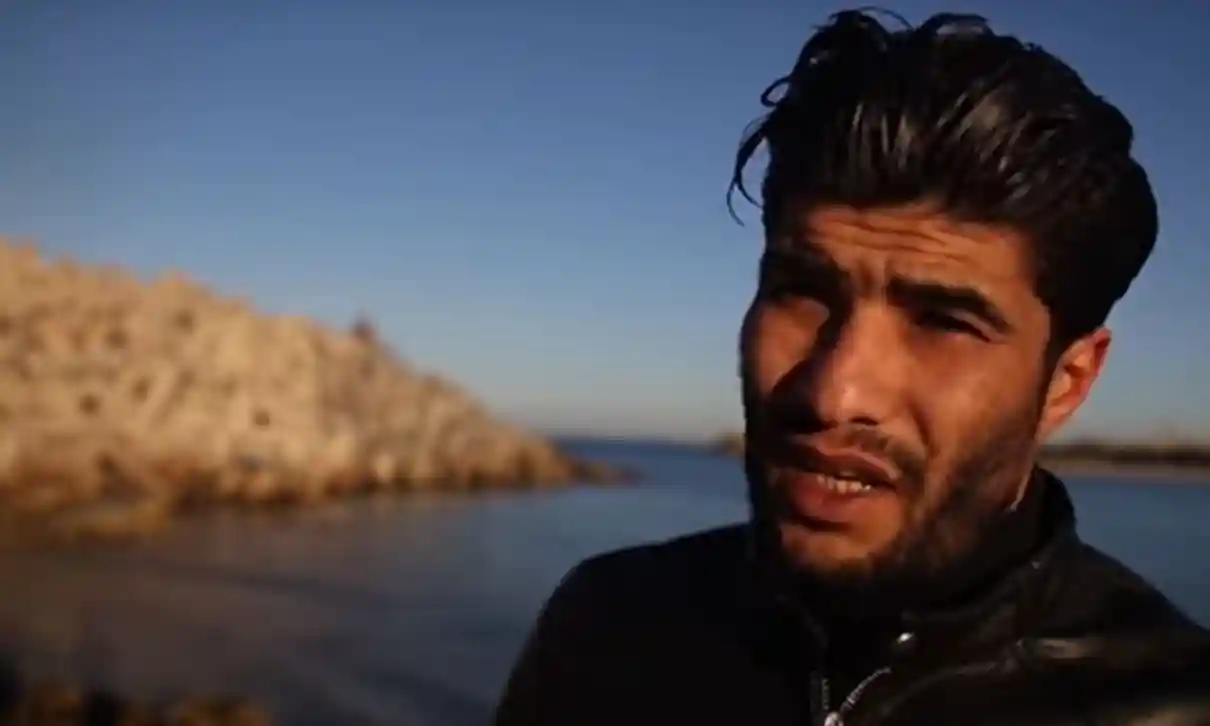
Abd al-Rahman Milad, AKA Bija, is accused by UN of being directly involved in sinking migrant boats
Libyan authorities have released a man described as one of the world’s most wanted human traffickers, who was placed under sanctions by the UN security council for being directly involved in the sinking of migrant boats.
The coastguard commander Abd al-Rahman Milad, known by his alias Bija, is suspected of being part of a criminal network operating in Zawiyah in north-west Libya. He was arrested last October but was freed on Sunday after the military attorney general of Tripoli dropped charges against him “for lack of evidence”.
News of his release was criticised in Italy, where two journalists who had reported on Bija’s alleged criminal activities were given police protection because of death threats.
Libya has been plagued by corruption and turmoil since a Nato-backed uprising toppled and killed the dictator Muammar Gaddafi in 2011. Since then, the oil-rich country has emerged as a major conduit for people from Africa and the Middle East fleeing wars and poverty and hoping to reach Europe by crossing the Mediterranean Sea.
In June 2018, the security council imposed sanctions on Bija and five other alleged leaders of criminal networks engaged in trafficking migrants and others from Libya.
Libya ordered arrest of alleged trafficker who attended Italy migration talks
Read more
In 2019, an investigation by the Italian newspaper Avvenire documented the presence of Bija in Italy at a series of official meetings in Sicily and Rome in May 2017, prompting criticism of the then interior minister, Marco Minniti.
Three months earlier, Minniti signed a memorandum with the leader of Libya’s UN-backed government, Fayez al-Sarraj, for cooperation with the Libyan coastguard, which included the provision of four patrol vessels. The deal empowered the Libyan coastguard to intercept migrant boats at sea and redirect them to Libya, where aid agencies say refugees are abused and tortured.
Bija, who the UN has previously claimed was “directly involved in the sinking of migrant boats, using firearms”, was introduced at the meetings as “a commander of the Libyan coastguard”, Avvenire reported. Minniti has denied any wrongdoing, saying Italy was unaware of the allegations of criminal activity against Bija at the time.
The Italian journalists Nello Scavo, who first documented Bija’s presence in Italy for Avvenire, and Nancy Porsia, who first wrote about his suspected criminal activities in 2016, were given police protection two years ago after receiving threats.
“It is absurd that Italy continues to give money to Libya’s coastguard – [a] country that released a trafficker who threatened two Italian citizens,” Scavo told the Guardian. “And it is even more absurd that his release took place a few days after the visit of the Italian prime minister, Mario Draghi, to Tripoli.”
Cosa ci racconta della #Libia di oggi la scarcerazione del trafficante Bija - di @mannocchia https://t.co/T27fnyHO33
— L'Espresso (@espressonline) April 13, 2021Last week, it emerged that Italian prosecutors investigating sea rescue NGOs and charities for alleged complicity in people smuggling wiretapped the telephone conversations Porsia and Nello had with their sources.
Porsia, whose family has received death threats, said his release could be a political move ahead of elections in Libya.
Last March, while Bija was in detention, the former UN-supported government in Tripoli promoted him and others for their participation in the fighting to repel an attack on the capital by eastern Libyan forces, according to the Associated Press.
“Bija is still perceived as a national hero by part of the Libyan population,” Porsia said. “He was arrested by the former interior minister. Today, in Libya, a new interim government has been appointed. It is clear that his release from prison takes place in a moment of political turmoil in a country that is preparing for elections.”
In a Facbeook post on Tuesday, Bija attacked the Libyan and international press: “When I was arrested last October, the press wrote fake news about me … I know that the arrest was ordered by some politicians who forgot that Abd al-Rahman Milad had protected for years the coasts of our homeland.”
Bija’s release was celebrated by many people in Zawiyah, where photographs showing him being embraced by a crowd of smiling men were posted on social media networks.
Officials in Libya did not provide more details about his release. According to the Associated Press, the country’s interior ministry declined to comment.
